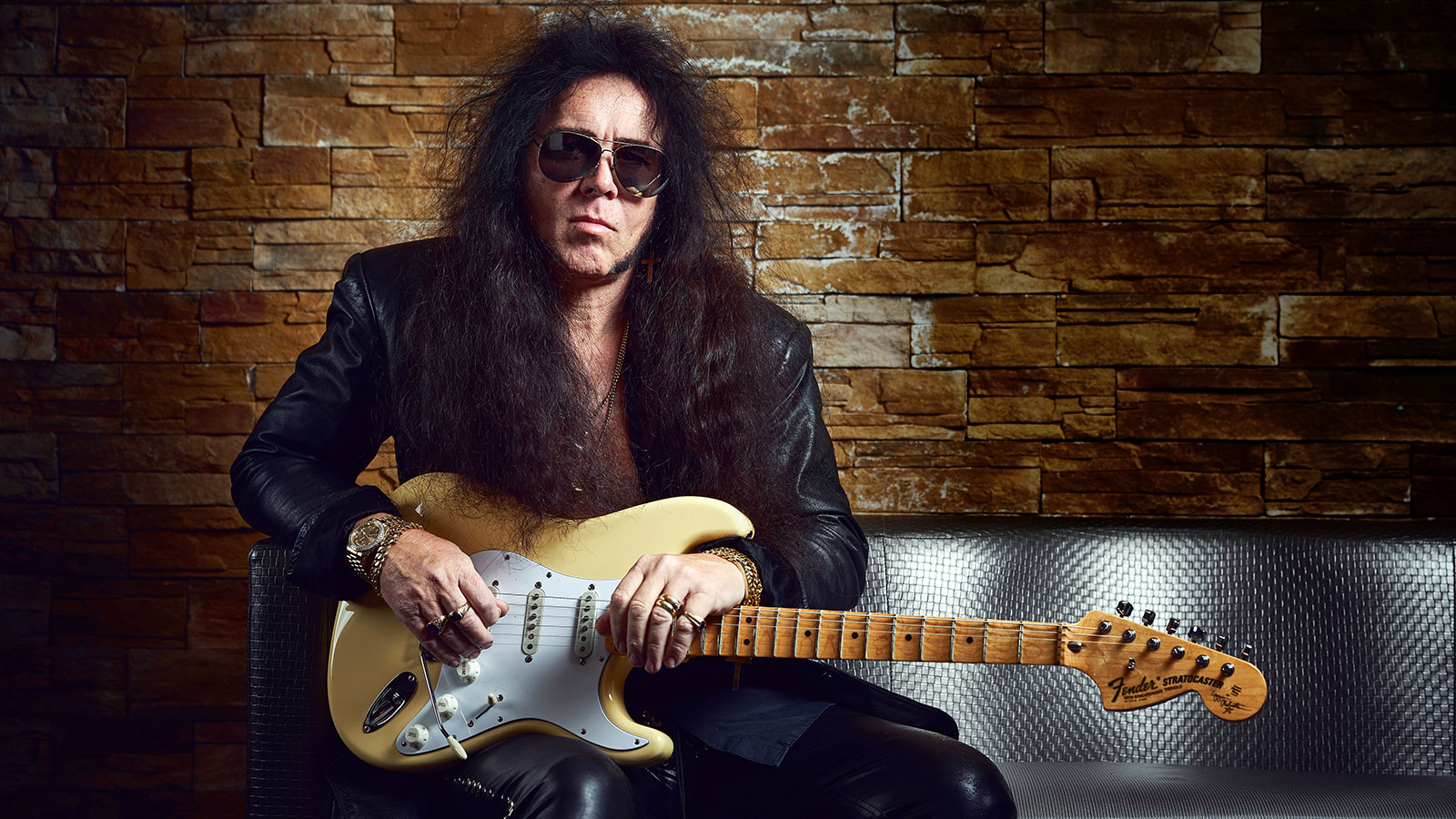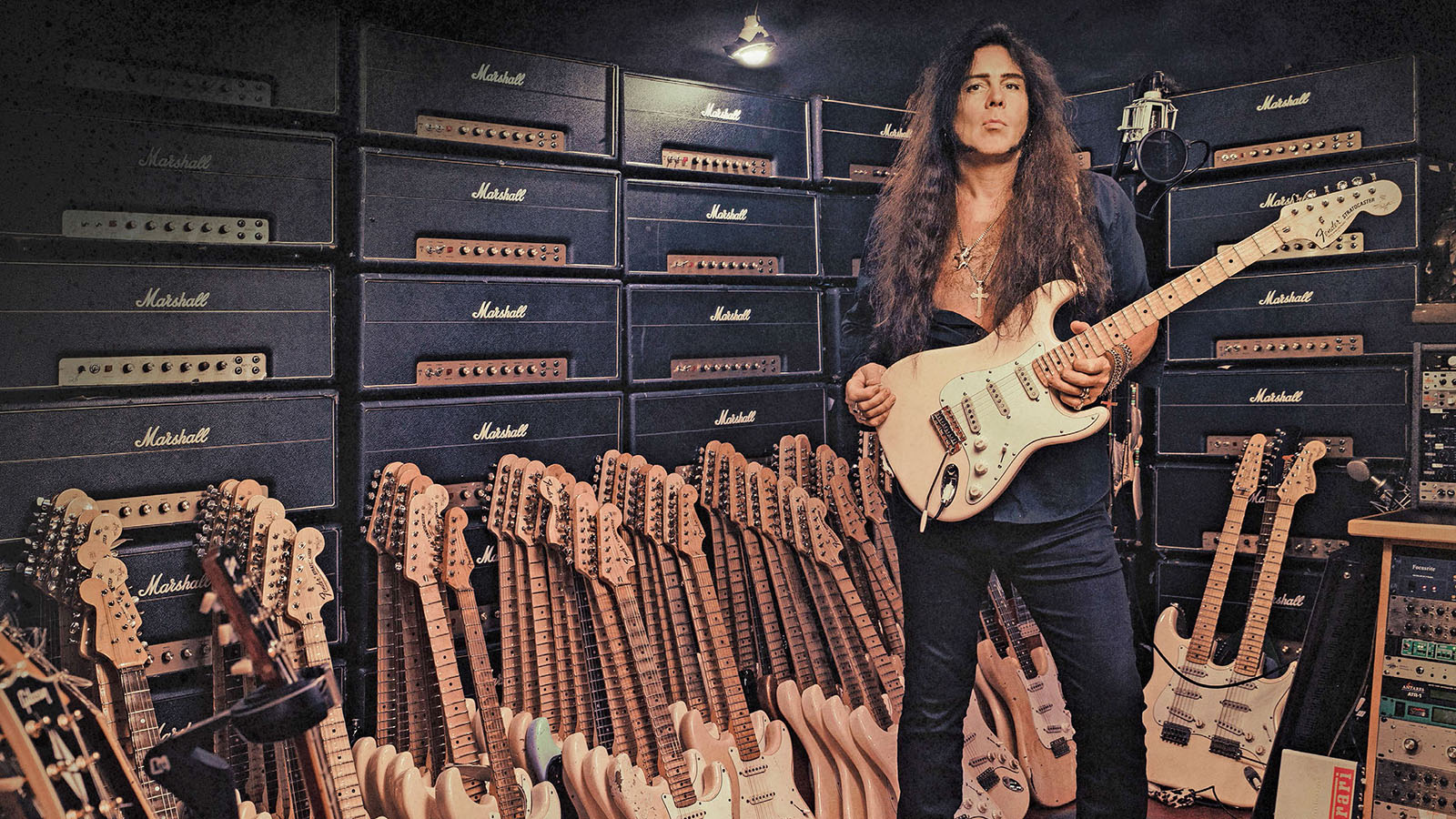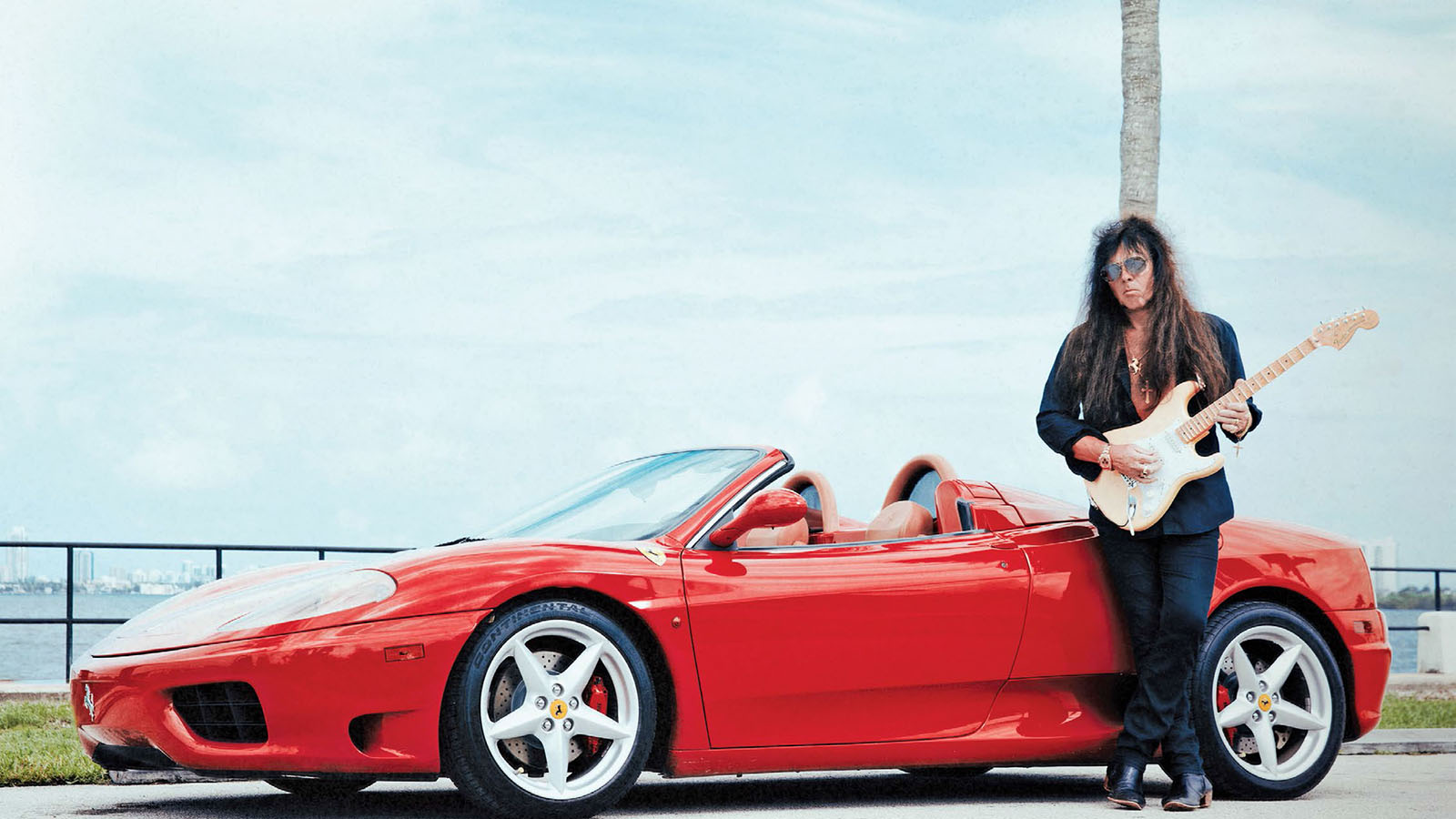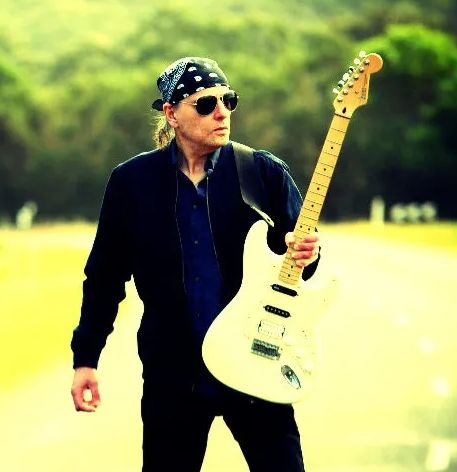10 questions for Yngwie Malmsteen: “I’m an extremist in everything I do. More is more in everything”
The shred king talks regrets, first gigs and explains why he never has a bad show

Yngwie Malmsteen needs little introduction but he sure deserves one. Few players have done more to digest the broad-spectrum grandeur of classical music and apply it to electric guitar music, to rock guitar.
He's a man who – as the header at the top of the page says – needs more. More volume. More speed. More theatricality. The former comes by way of a Marshall backline you can see from space (his words). The speed? That's from decades of practice. The theatricality? Well, that comes out in pretty much everything he does.
He is a conversationalist. Malmsteen appreciates that this is the business of entertaining. Who else would think of triggering a drum sound with a .357 Magnum? You get the picture – Malmsteen is quite the character. Here, the man, the myth, the legend answers 10 quick-fire questions, with typical candor.
How’d you first get into the guitar?
“I come from a very musical family; my mother was a jazz singer [who also] sang in the choir, and my father was a guitar player. My older siblings were musicians too, playing classical violin and piano.
“I was given my first guitar, a cheap, shitty acoustic, on my 5th birthday but didn’t start playing it until I was 7 when I saw Jimi Hendrix smashing his guitar on TV. I thought it was cool and so I wanted to do that too!”
What was your first “real” guitar?
Get The Pick Newsletter
All the latest guitar news, interviews, lessons, reviews, deals and more, direct to your inbox!
“My older brother played guitar, but when I was becoming better than him, he went out and bought an early Seventies Strat copy – but because he was never home, I’d play his guitar instead. I had that guitar from then on, and when my next birthday came around, my mother bought the guitar off my brother so I could keep it. Later, when I was around 12, I got my first Strat.”
What was the first song you learned?
“A piece of Swedish folk music from the 17th century. It was a very baroque-style melody in A harmonic minor.”
Tell us about your first gig.
“I was about eight. I had an electric guitar with a little amp, and although it wasn’t a good one, it made a lot of noise. It was at my school in the cafeteria, which had a sort of a stage.
“I had asked one of my school friends to play drums, but he said he didn’t know how to, so I showed him how – so we could play the gig, which we did. I was on stage doing my shit, throwing my guitar around and being crazy onstage. I’m an extremist in everything I do. More is more in everything.”

Have you ever had a terrible show?
“I’ve always had the ability to bounce back from almost anything. I have what they call ‘tennis memory,’ so if something starts going wrong, whether it’s my fault or not, I’ll just turn around and go, “Well, fuckin’ watch this!” and will do something outrageous in order to make everything better.
“For the last 30 years or more, I’ve never allowed myself a bad show. It’s always in my hands, so if I allow myself to let it slip and go out of control, it’s my fault and I will go off stage feeling shitty.”
What’s your favorite piece of gear?
“It’s my “Duck” [1972 Fender Stratocaster]. I don’t play it as much anymore, but there’s something special about it. But I love them all; I love all my Marshalls – and I love my smoke machines too. You can’t do a show without those!”
What’s your proudest moment?
“It’s my latest album, Parabellum. It was made in a very different way than I have done in a while. For the last 15 years, I’d go on the road then go into the studio and continue that cycle, but with Covid, it stopped all of that. So I was in the studio constantly for one year. I must have written something like 100 songs, 80 or 90 pieces, and for me those songs on the album were the crème de la crème.”
Any advice for eager newbies?
If your goal is to be a full musician, whether that be a composer or an artist, then there’s no shortcut
“I’d ask them first what they’re trying to achieve. If it’s to be famous or successful, there are numerous ways of getting there. But if their goal is to be a full musician, whether that be a composer or an artist, then there’s no shortcut. There’s a lot of dedication and hard work required. And there will always be a lot of people hating on you too.”

What’s more important – speed or emotion?
“I’m sure there are examples of empty fast notes. Those examples do exist. But if you listen to the way I play, and you hear a fast slur or a fast run, a fast arpeggio or whatever I’m playing, if you slowed that down, it would have full harmonic value along with passion and expression. And just listen to my vibrato – that’s all I have to say. Nothing more needs to be said. You can’t tell me that has no emotion. You must be tone deaf.”
Finally, do you have any regrets?
“There are a lot of things I do regret, but ultimately [one’s] life decisions have to work and act as a lesson. If from that lesson it led to a decision, which led to somewhere good, then it was a good thing to do and vice versa, and I’ve done my share of both. With the wealth of experience and wisdom I’ve gained from living the life I’ve lived, it is what it is, because at the time, I did the right thing – even when I may not have!”
- Parabellum is out now via Mascot Label Group.
Joe Matera is an Australian guitarist and music journalist who has spent the past two decades interviewing a who's who of the rock and metal world and written for Guitar World, Total Guitar, Rolling Stone, Goldmine, Sound On Sound, Classic Rock, Metal Hammer and many others. He is also a recording and performing musician and solo artist who has toured Europe on a regular basis and released several well-received albums including instrumental guitar rock outings through various European labels. Roxy Music's Phil Manzanera has called him, "... a great guitarist who knows what an electric guitar should sound like and plays a fluid pleasing style of rock." He's the author of Backstage Pass: The Grit and the Glamour.
“There’d been three-minute solos, which were just ridiculous – and knackering to play live!” Stoner-doom merchants Sergeant Thunderhoof may have toned down the self-indulgence, but their 10-minute epics still get medieval on your eardrums
“There’s a slight latency in there. You can’t be super-accurate”: Yngwie Malmsteen names the guitar picks that don’t work for shred


![A black-and-white action shot of Sergeant Thunderhoof perform live: [from left] Mark Sayer, Dan Flitcroft, Jim Camp and Josh Gallop](https://cdn.mos.cms.futurecdn.net/am3UhJbsxAE239XRRZ8zC8.jpg)







